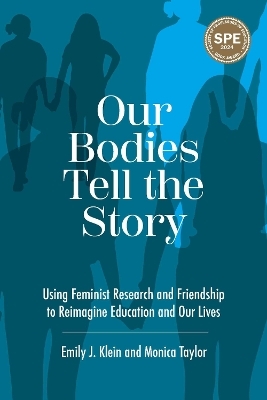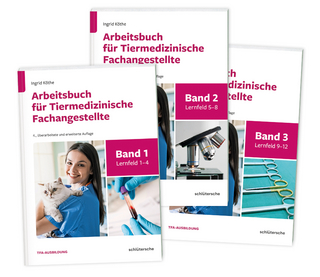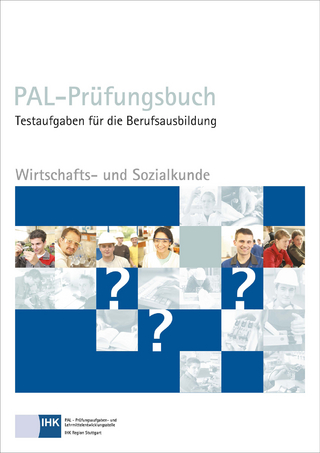
Our Bodies Tell the Story
Myers Education Press (Verlag)
978-1-9755-0256-0 (ISBN)
Our Bodies Tell the Story: Using Feminist Research and Friendship to Reimagine Education and Our Lives asks (and answers) a number of critical questions that are key to improving our educational system. How can we use our embodied stories to navigate and disrupt how schools and society reproduce the patriarchy and heteronormativity within our institutions of learning? How do we transgress oppressive boundaries (boundaries cultivated by the patriarchy that have been perpetuated at home, within school, outside of school, in university settings, and in communities) that permit our dehumanization and exclusion? As teachers, professors, and teacher educators, how do we navigate our students' trauma when we are navigating the re-ignition of our own?
This book sets out to tell the story of how the authors have tried to answer these questions in their lives and work. It is the story of a friendship, a partnership, a narrative retelling of their "becoming" as girls, teenagers, women, teachers, wives, daughters, scholars, and mothers. From the earliest memories of their gendered and sexualized childhoods to the present navigation of sexism, heteronormativity, and trauma in the context of teaching and schools, these stories reside in their bodies. They recall, construct, and reexamine, emerging from their dialogues—from talking face-to-face, to email, to FB messenger, poetry, and text. Our Bodies Tell the Story centers around the co/autoethnography of personal narratives, stories, and a kind of survival testimonies, the ways in which the authors bore witness to each other's lives.
The book extensively uses co/autoethnography as a self-study feminist research methodology that takes autoethnography, "a form of self-representation that complicates cultural norms by seeing autobiography as implicated in larger cultural processes" (Taylor & Coia, 2006, p. 278) and moves it beyond the singular to the plural. Using this methodology enables the authors to interweave their stories through dialogue, so that validity, insight, and analysis all emerge in the text. The book investigates the self within the social context of personal relationships, as well as the larger society. Creating a co/autoethnography is a rich, multi-layered endeavor because it is not conducted in a vacuum. As such, it is an important book for faculty and researchers involved in a number of disciplines, including auto/ethnographic research, gender studies, women's studies, feminist studies, qualitative research and many other areas of study.
Perfect for courses such as: Gender and Education │ Public Purposes of Schooling │ Introduction to Gender, Sexuality, and Women's Studies │ Critical Feminisms in Teacher Education │ Gender Issues in Teacher Education
Emily J. Klein is a professor at Montclair State University in the Department of Teaching and Learning, the PhD program in Teaching and Teacher Education, and the Department of Gender, Sexuality, and Women's Studies. She is also academic co-editor of The Educational Forum, the journal of Kappa Delta Pi, and co-PI on the WIPRO Science Education Fellows grant that supports science teacher leadership in five districts in New Jersey. The author of several articles on teacher professional learning, teacher leadership, and urban teacher residencies, she is the author of two books, Going to Scale with New School Designs: Reinventing High School and A Year in the Life of an Urban Teacher Residency: Using Inquiry to Reinvent Math and Science Education. Monica Taylor is the Director of Gender, Sexuality, and Women's Studies and a feminist professor in the Department of Educational Foundations at Montclair State University. She is academic co-editor of The Educational Forum. She writes about feminist pedagogy, self-study, LGBTQ+ inclusive practices, teaching for social justice, and teacher leadership. She is co-PI of the WIPRO Science Education Fellows grant, which supports science teacher leaders in five districts in New Jersey. She recently co-edited The 2nd International Handbook of Self-Study of Teaching and Teacher Education Practices. She serves on the Board of Planned Parenthood of Metro NJ, and volunteers as an advocate for asylum seekers and voter protection. Her commitments to fighting sexism, heteronormativity, and racism manifest in all aspects of her life.
Chapter 1: Letting Our Bodies Tell the Story: An Introduction
Chapter 2: A Feminist Embodied: Co/autoethnography of Two Friends
Chapter 3: Childhood: Becoming Girls
Chapter 4: Performing Adolescence
Chapter 5: Becoming Teachers: Addressing Trauma and Emotions in the Classroom
Chapter 6: Womanhood: On Aging Bodies, Beauty, and Academic Mothering
Chapter 7: Conclusion: Living A Feminist Life and Disrupting the Patriarchy
Acknowledgments
About the Authors
Index
NOTE: Info subject to change up until publication date.
| Erscheinungsdatum | 01.02.2023 |
|---|---|
| Sprache | englisch |
| Maße | 152 x 229 mm |
| Themenwelt | Sozialwissenschaften ► Pädagogik ► Berufspädagogik |
| ISBN-10 | 1-9755-0256-6 / 1975502566 |
| ISBN-13 | 978-1-9755-0256-0 / 9781975502560 |
| Zustand | Neuware |
| Haben Sie eine Frage zum Produkt? |
aus dem Bereich


